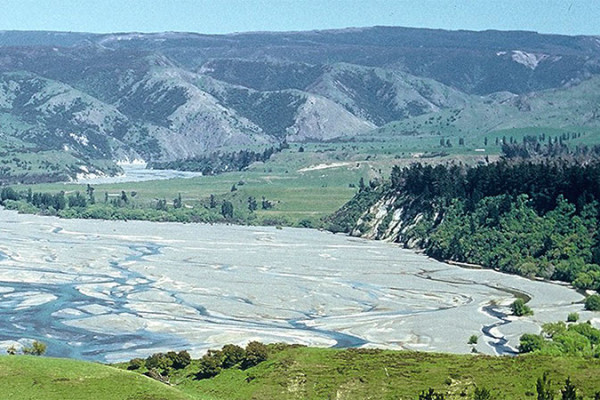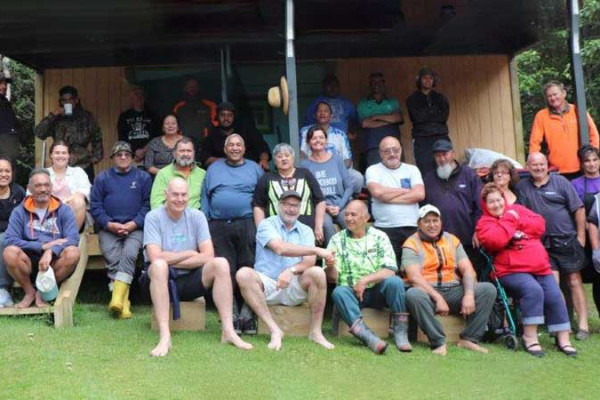Late in 2012, Michael Bird was busy lambing when the family farm outside Taihape suddenly slumped. Fences snapped. A hayshed broke in half, a creek blocked, land and buildings flooded.
Background
"I watched this slip move 18 inches (45 cms) a day," Michael recalls. "Almost overnight, fifteen productive paddocks were reduced to one."
"A once flat hay paddock now had a 15-metre deep by 30-metre wide canyon, 400 metres long. The slip zone became a war zone. We had a lot of sleepless nights."
Taihape hill country is notorious for deep-seated landslides, an ongoing challenge to landowners and the Horizons Regional Council. The council’s Sustainable Land Use Initiative (SLUI), the largest initiative supported by MPI’s Hill Country Erosion Programme, has a focus on planting trees to help tackle erosion. Over a decade, nearly 16 million trees have been planted across the region.
In 2012, as Michael Bird’s farm disintegrated, he found it hard to find support, despite losing huge quantities of sediment from the slump.
Assessing a tricky situation
Horizons later agreed to help father and son manage the slump – soon dubbed the "Bird Slide" – and, importantly, contribute towards the massive costs of remediation. Horizons Land Management Adviser Libby Owen also sat down with Michael to draw up a whole farm plan, a process of identifying erosion-prone areas to treat and plant out.
The SLUI farm planning exercise pinpointed both risks – and positive opportunities such as planting of mānuka for a flourishing local honey industry. "Doing the farm plan changed the way I think," Michael recalls.
But he wasn’t ready to give up, dewatering the land with a bulldozer, spending big on enclosing stock in new fencing. The slump appeared to be coming under control. Then, overnight, the nightmare returned in 2017, as the land slid again. Michael was now convinced that mānuka planting was the answer.
A move to mānuka
"I went back to Libby and said 'What can we do?' She then helped me draw up the paperwork for what was eventually a successful application to the Government's One Billion Trees (1BT) programme.
The 1BT grant has helped establish over 100,000 mānuka seedlings, spanning 99 hectares of the Birds' farm including the 75 hectare slump. Local business Tweeddale Apiaries have agreed to place hives among the trees.
"My wife is excited about the mānuka plantings," he says. "She thinks there'll be less work involved. But this will be a different kind of work, involving a lot of tasks like weed and
pest control."
Michael Bird knows shifting to tree planting to manage the landslide under 1BT represents a long-term and expensive commitment. But for now he’s comfortable that it’s the right one.



